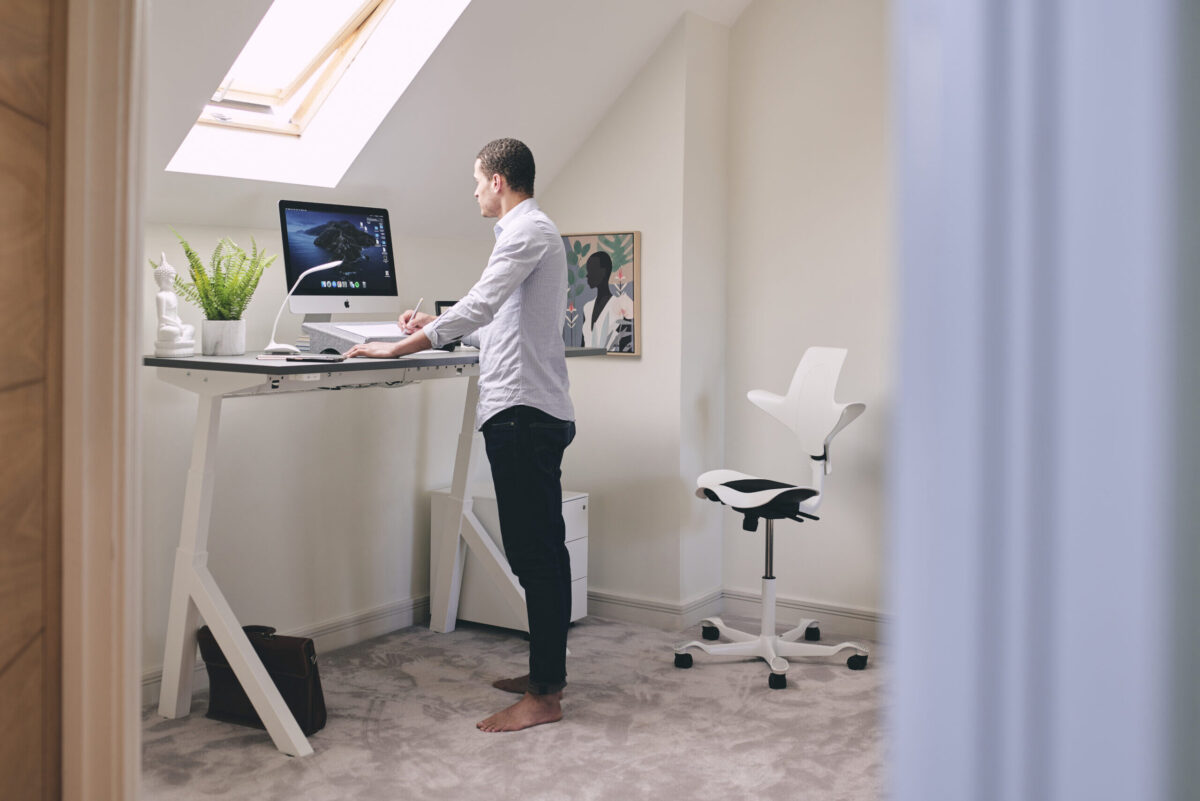The use of standing desks has been scientifically proven to enhance your productivity, concentration and increase your creativity. The reason for this, is whilst your standing some of the body’s largest muscles are working, so this increases blood inflow into the brain. Consequently, it improves the way we feel which then improves the way we work. Studies have also found that standing desks have the capability to increase productivity by 10-20%.
As well as becoming more productive, users of standing desks will experience much improved health and better quality of life than those who sit for longer.
It is generally recognised that office workers spend an average of 65 to 75 percent of their working hours sitting down (with some reporting to be well over 90%), the majority of this takes place in long sessions, with users only getting up for drinks or comfort breaks. A study published in the British Journal of Sports Medicine, showed that compared with those who sit the least, those who sit the most are more than double as likely to develop type 2 diabetes and cardiovascular disorder and have a 13 percent and 17 percent respectively increased chance of developing a cancerous condition or premature mortality.
Standing up to work uses more muscle function in the body than sitting to work, so it won’t be news to you that users of a standing desk are likely to experience a higher metabolic rate than those using a conventional desk setup. This means that standing desk users burn more calories by definition! Standing uses around 13 per cent more energy over the course of an eight-hour day, says Professorr David Dunstan, Head of the Physical Activity Laboratory at the Baker Heart and Diabetes Institute in Melbourne. This means that standing for four hours, would burn the equivalent number of calories to what you would burn by undertaking a 45-minute walk!
However, standing desks aren’t just all about the long-term benefits, as they’re also extremely advantageous in the short term for the body. Standing more will have an almost immediate effect in helping avert an adverse and sometimes dangerous build-up of sugars and fats in your bloodstream, and as a result, those who have invested in a standing desk and use the desk as they should, will have better energy levels and improved concentration levels.
People who are new to standing up for longer periods may undergo some differences in musculoskeletal sensations and sometimes increases tiredness, as the body still needs to acclimatise to its new way of working. These are recognised side-effects, and aren’t to be worried about as they are just down to the body adapting a new and improved routine/
However, we would strongly recommend that a new standing desk user should take a little time out if the discomfort or pain doesn’t subside after altering posture or going on a walk. It is important to understand that months or years of bad posture will take some time to iron out, so don’t be put off if it doesn’t feel right to start with – this is totally normal and expected.
Further medical advice should be sought if there is any ongoing pain, as it would suggest that there is more at play than a straightforward musculoskeletal condition. Standing desks will not adversely affect any pre-existing condition, and in their own rights will only contribute positively to a users’ mental and physical wellness.


